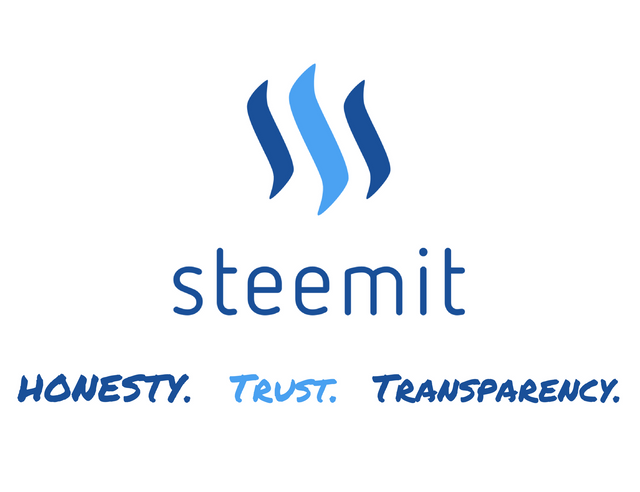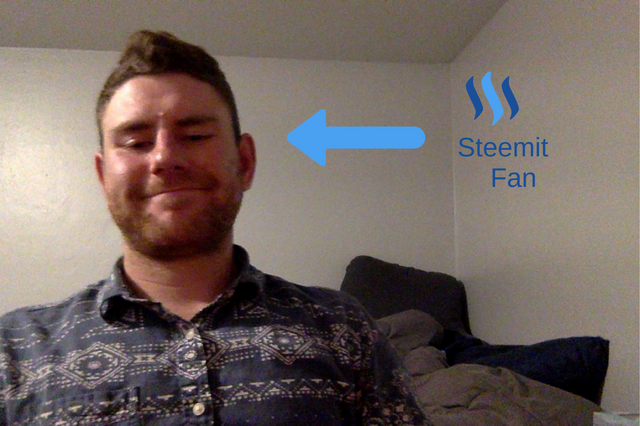The psychology of transparency on Steemit

Steemit is a unique social platform.
This may seem obvious ⎯ Steemit is on a Blockchain, it values quality over quantity and the community self-governs itself in many ways. Steemit stands in stark contrast to many other mainstream social media platforms.
Whereas other sites value and sell personal information, Steemit values good content and protects privacy. Users are encouraged to be authentic and share information that will benefit everyone.
One of the main components of Steemit and the Blockchain is that users are unable to censor any of their own content or privately message others. This isn't the case with other platforms, especially Facebook, which grants users all sorts of tools to adjust who sees what. In essence, it allows people to have control over how they will be perceived by different audiences. In addition to this, users on Facebook can also privately message one another.
If Facebook were to suddenly strip away any of these features, users would be frustrated, to say the least. There seems to be this general consensus that the ability to shield social activity from certain groups of people is a necessary component to a thriving social media platform. But, this begs the questions: Why?
Let's hone in on private messaging first. One could argue that allowing private messaging encourages dishonesty; you can be one version of yourself in the limelight and act differently behind closed doors. This creates an environment in which people portray different versions of themselves. Interestingly, private messaging could also encourage honesty; perhaps someone portrays a false imagine in the public's eye but feels comfortable being honest with someone directly in a private chat.
Either way, when it comes to transparency, honesty is one of the first thoughts that comes to mind. It is known that humans act differently depending on who's watching ⎯ we are social animals after all. But, when we alter our behavior due to the mere presence of others, we sacrifice authenticity. And, when everyone has this ability to selectively portray themselves, we sacrifice trust. If I know that I may or may not be seeing the whole picture (perhaps, someone's Facebook profile page) it would be a gamble, so to speak, to assume that my online social interactions with others are truly authentic.

CC0 Creative Commons: https://pixabay.com/en/increase-like-button-sign-web-3172503
When a social media platform loses trust and authenticity, it is naive to assume that every user is honest. In fact, interactions become inherently disingenuous and users are encouraged to act dishonestly. Reputation plays a role in this. If your online reputation is an aggregate of your social media interactions and how your portray yourself, it is advantageous to craft the perfect image. Facebook and other major social media platforms make it easy for users to photoshop their life.
On the other side of things, Steemit ensures transparency by restricting users' ability to manually adjust their image. Of course, someone can try to portray a false image on Steemit, but this will be much harder to do in practice.
Because everything is in the open, Steemit community members can use consistency as a way to measure honesty. This isn't a fail proof method, but it is reasonable to assume that a user is authentic if they come across as consistent. This holds true if you accept that it is much harder to be consistently dishonest all the time (as would be the case with Steemit) than it is to curate dishonesty, so to speak (as would be the case with Facebook, and other platforms like that).
I want to reiterate that it is not that there aren't malicious actors or dishonest people on Steemit, but rather, that given the nature of transparency, dishonesty is discouraged.
On a personal note, it has been refreshing using Steemit. This is rooted not just in Steemit's structure but also the community vibe. Radical honesty and vulnerability are encouraged.

It is reassuring that Steemit's member base is generally empathetic and primarily judges ideas on their merit. I've been more honest on Steemit than I have on any other social media platform by a long shot. For me, this is due to my discomfort with society's irrational expectations and norms, exacerbated by social media's obsession with false images and a subtle (but powerful) hyper-competitive environment.
On one hand, Steemit may attract a certain type of person that is more open to authentic connections, but it also lays the groundwork for this to take center stage. I'm excited to watch Steemit grow. It isn't as glamorous as Facebook, Twitter, Instagram or Snapchat, but it is more pure. And, I'd be willing to bet that most people would agree that expressing their true self makes them the most happy.
While a major change in the mainstream social media sphere isn't going to happen overnight, it is happening gradually, and it is a good sight to see.
I currently don't have a signature for my posts. If anyone in the Steemit community is able to help out, I'd appreciate it! Perhaps, we can strike a trade.
